Abstract
Between June 1990 and July 1991, broiler chickens from 49 flocks from 23 farms were examined for the carriage of Campylobacter jejuni at slaughter. Thirty-seven flocks (76%) were campylobacter-positive. Prevalence of campylobacter-colonization was not associated with any of a variety of factors such as water source and broiler house floor structure. There was also no apparent seasonal variation in carriage. Investigations on one farm indicated that dipping boots in disinfectant before workers entered broiler houses either delayed or prevented colonization with C. jejuni.
Full text
PDF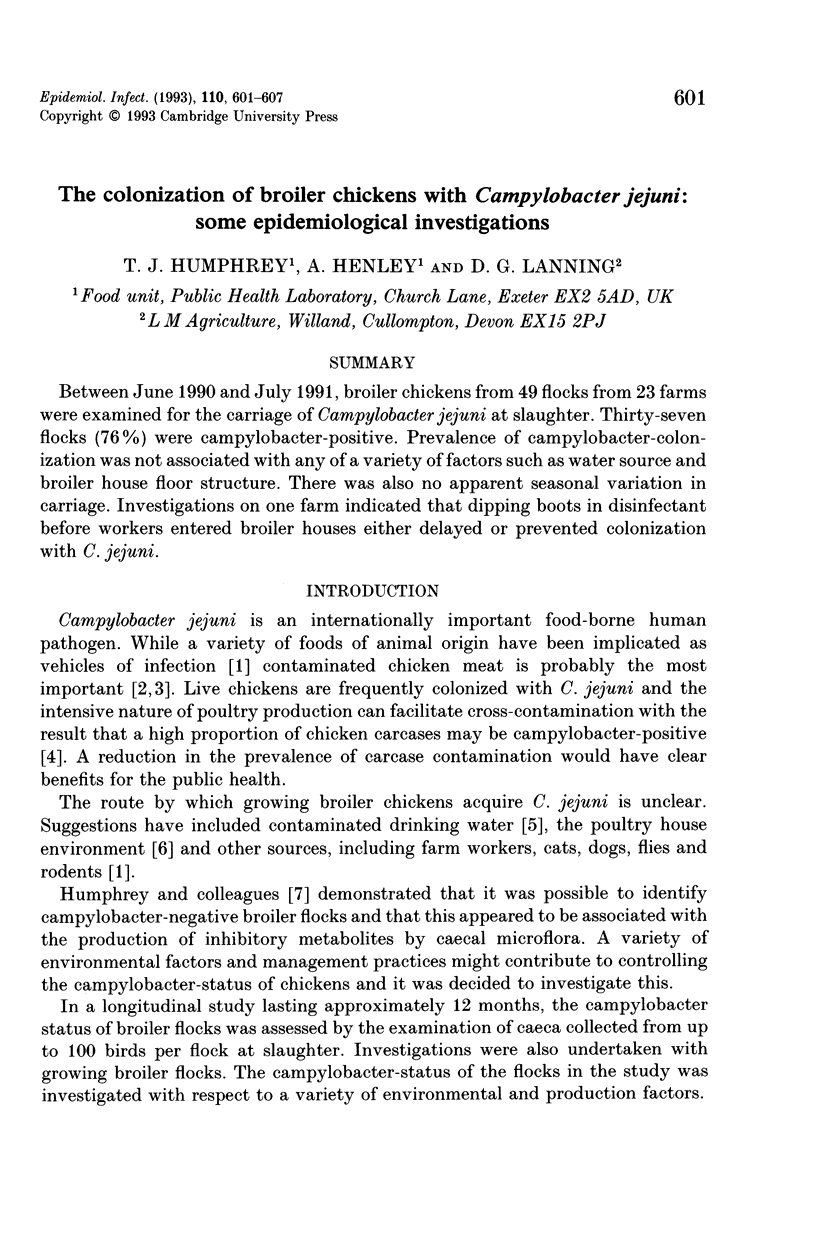
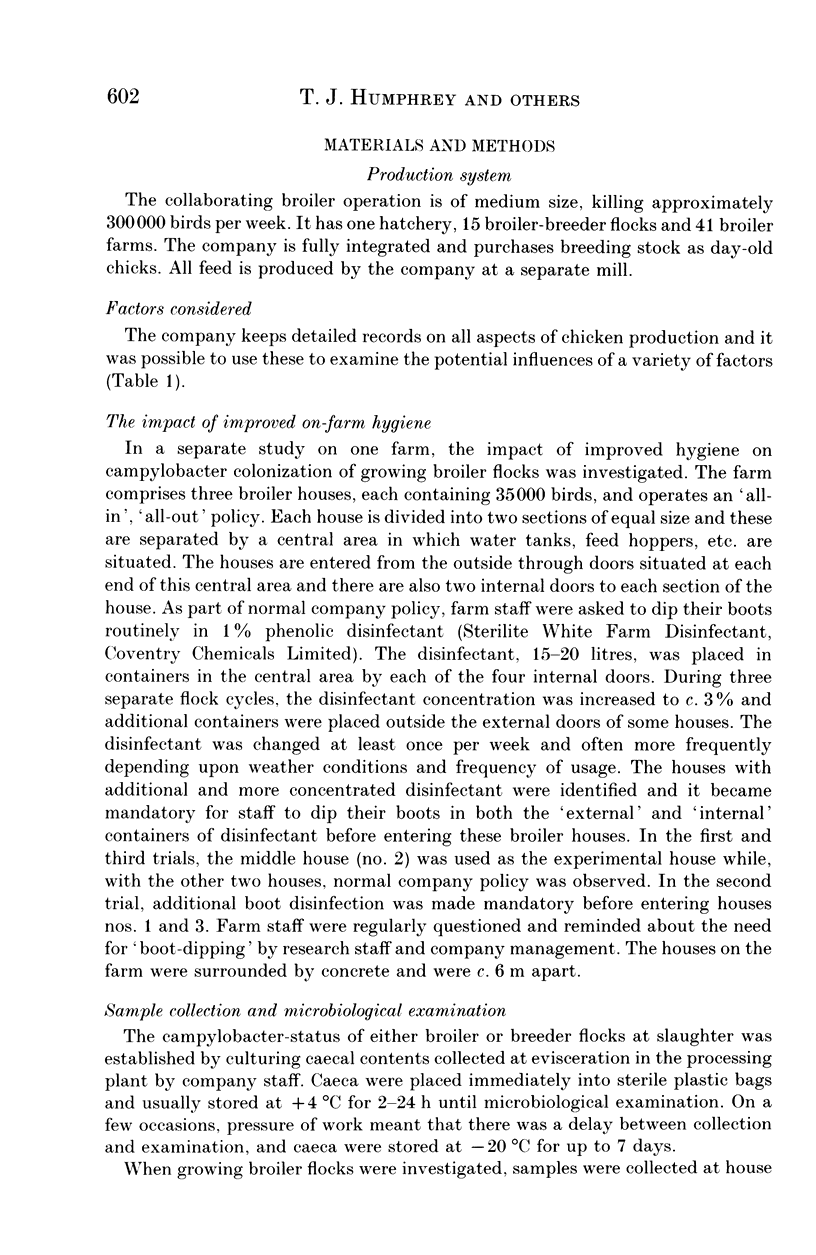
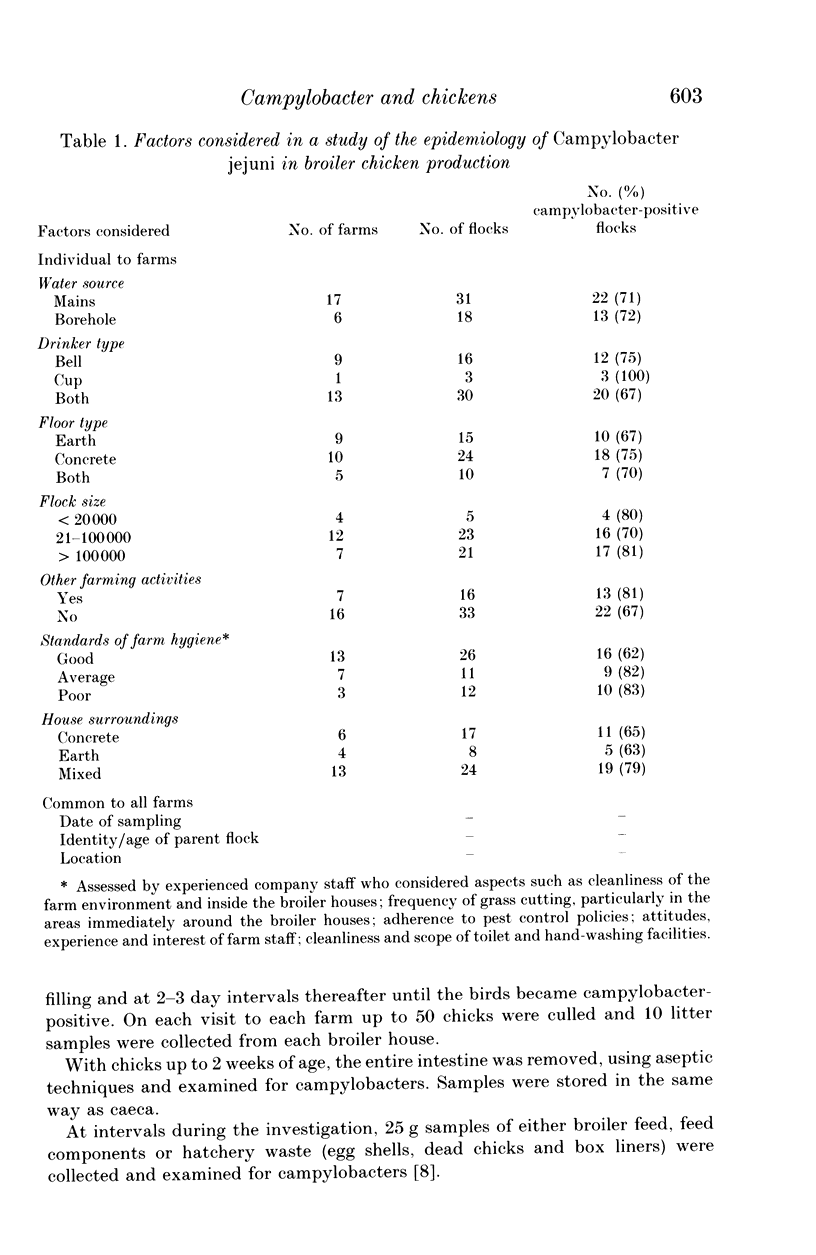
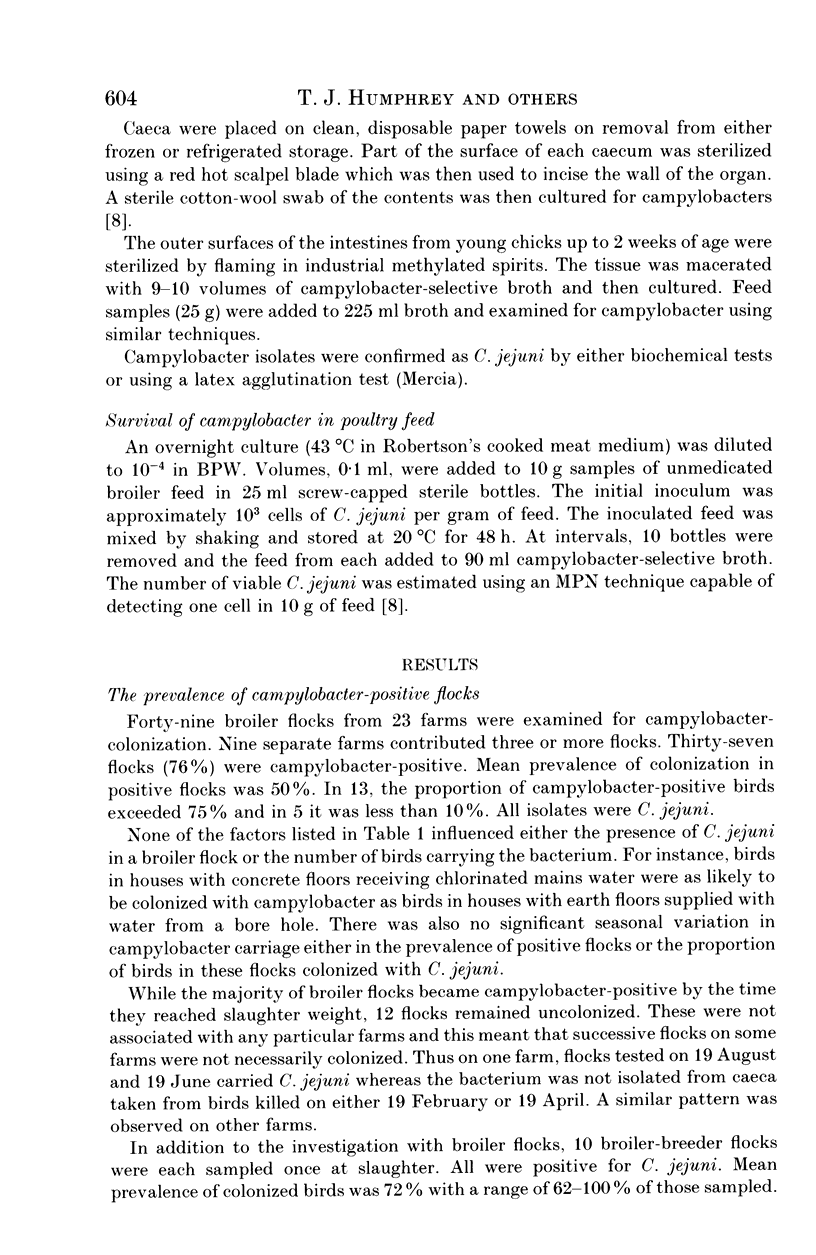
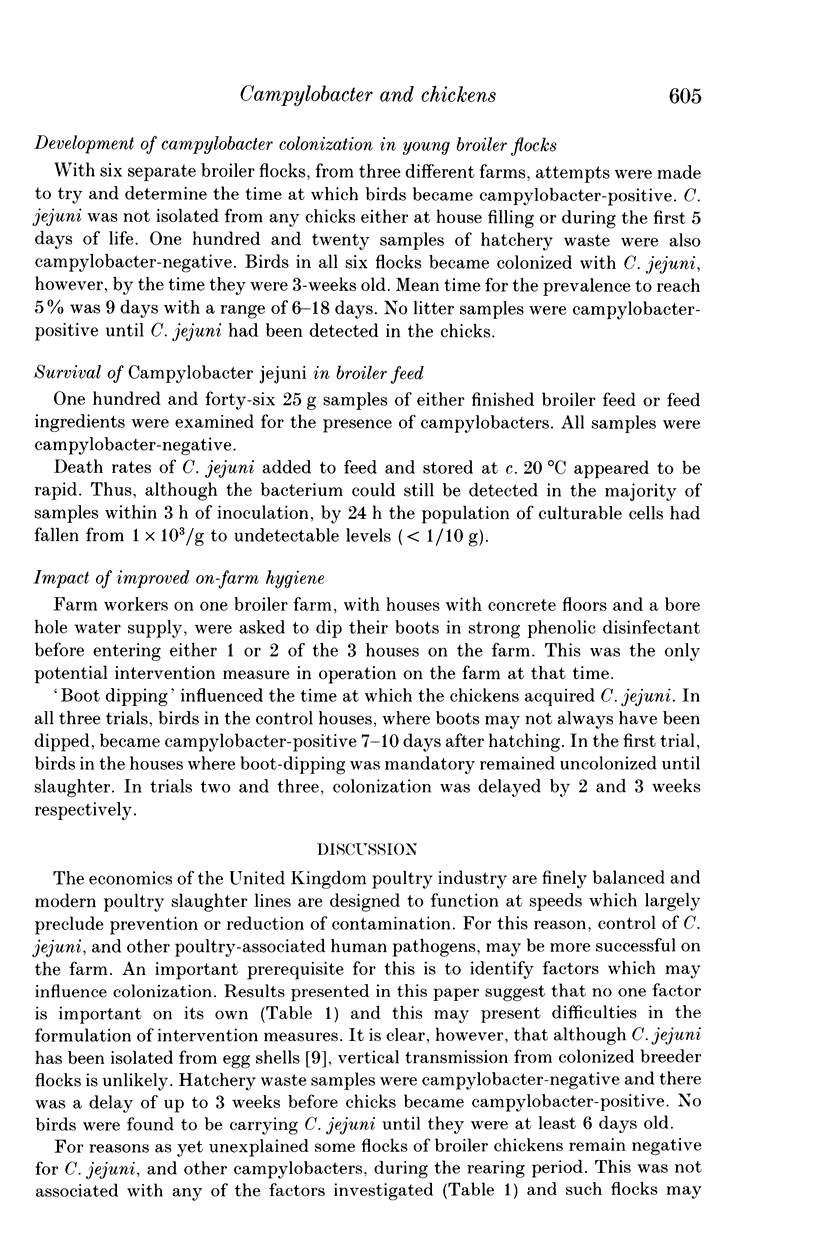
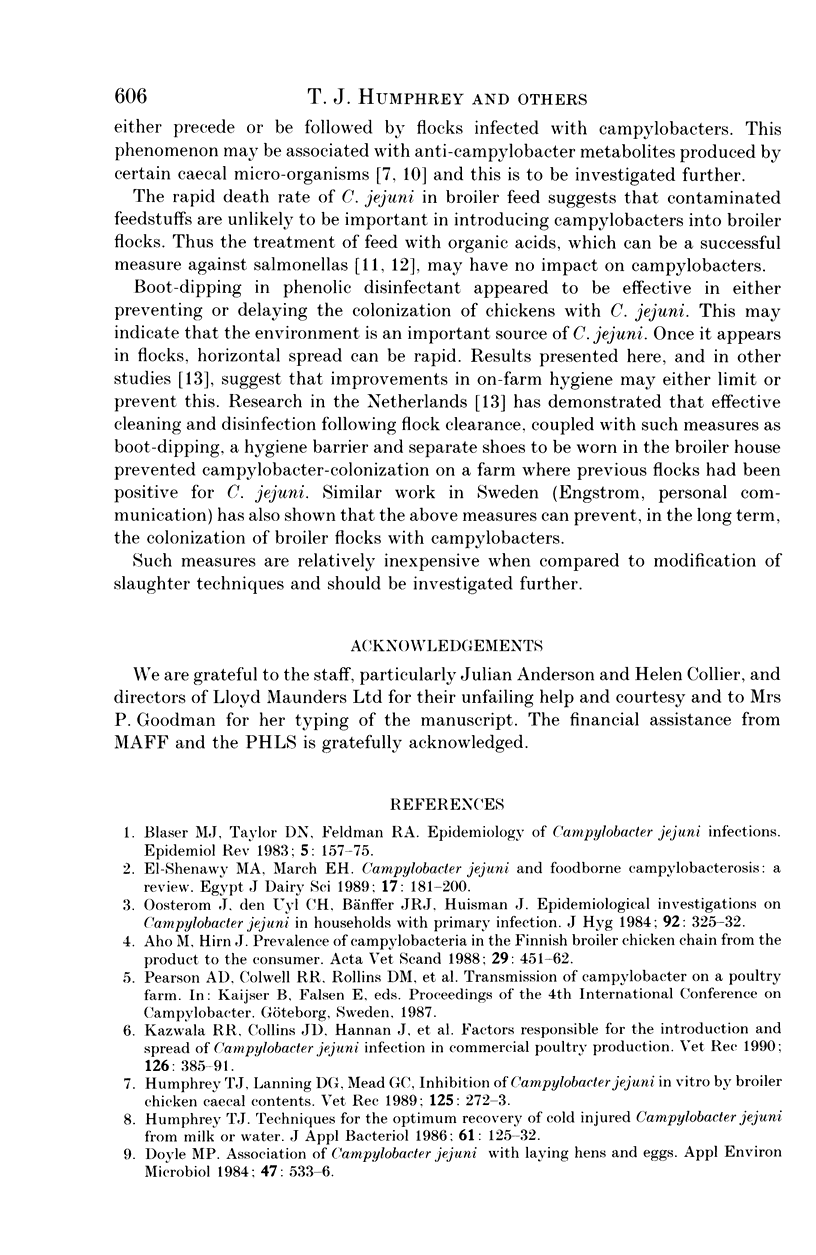
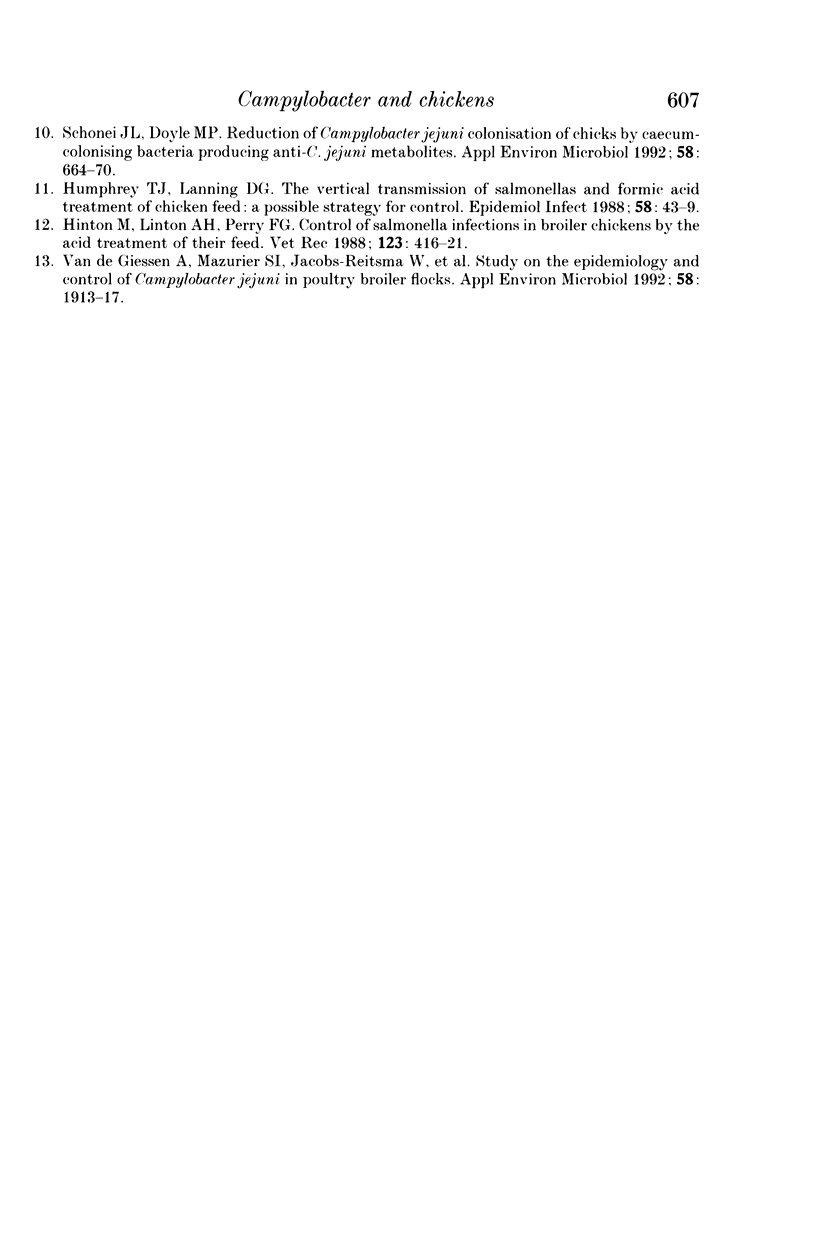
Selected References
These references are in PubMed. This may not be the complete list of references from this article.
- Aho M., Hirn J. Prevalence of campylobacteria in the Finnish broiler chicken chain from the producer to the consumer. Acta Vet Scand. 1988;29(3-4):451–462. doi: 10.1186/BF03548642. [DOI] [PMC free article] [PubMed] [Google Scholar]
- Blaser M. J., Taylor D. N., Feldman R. A. Epidemiology of Campylobacter jejuni infections. Epidemiol Rev. 1983;5:157–176. doi: 10.1093/oxfordjournals.epirev.a036256. [DOI] [PubMed] [Google Scholar]
- Doyle M. P. Association of Campylobacter jejuni with laying hens and eggs. Appl Environ Microbiol. 1984 Mar;47(3):533–536. doi: 10.1128/aem.47.3.533-536.1984. [DOI] [PMC free article] [PubMed] [Google Scholar]
- Hinton M., Linton A. H. Control of salmonella infections in broiler chickens by the acid treatment of their feed. Vet Rec. 1988 Oct 15;123(16):416–421. doi: 10.1136/vr.123.16.416. [DOI] [PubMed] [Google Scholar]
- Humphrey T. J., Lanning D. G., Mead G. C. Inhibition of Campylobacter jejuni in vitro by broiler chicken caecal contents. Vet Rec. 1989 Sep 2;125(10):272–273. doi: 10.1136/vr.125.10.272. [DOI] [PubMed] [Google Scholar]
- Humphrey T. J., Lanning D. G. The vertical transmission of salmonellas and formic acid treatment of chicken feed. A possible strategy for control. Epidemiol Infect. 1988 Feb;100(1):43–49. doi: 10.1017/s0950268800065547. [DOI] [PMC free article] [PubMed] [Google Scholar]
- Humphrey T. J. Techniques for the optimum recovery of cold injured Campylobacter jejuni from milk or water. J Appl Bacteriol. 1986 Aug;61(2):125–132. doi: 10.1111/j.1365-2672.1986.tb04265.x. [DOI] [PubMed] [Google Scholar]
- Oosterom J., den Uyl C. H., Bänffer J. R., Huisman J. Epidemiological investigations on Campylobacter jejuni in households with a primary infection. J Hyg (Lond) 1984 Oct;93(2):325–332. doi: 10.1017/s002217240006486x. [DOI] [PMC free article] [PubMed] [Google Scholar]
- Schoeni J. L., Doyle M. P. Reduction of Campylobacter jejuni colonization of chicks by cecum-colonizing bacteria producing anti-C. jejuni metabolites. Appl Environ Microbiol. 1992 Feb;58(2):664–670. doi: 10.1128/aem.58.2.664-670.1992. [DOI] [PMC free article] [PubMed] [Google Scholar]
- van de Giessen A., Mazurier S. I., Jacobs-Reitsma W., Jansen W., Berkers P., Ritmeester W., Wernars K. Study on the epidemiology and control of Campylobacter jejuni in poultry broiler flocks. Appl Environ Microbiol. 1992 Jun;58(6):1913–1917. doi: 10.1128/aem.58.6.1913-1917.1992. [DOI] [PMC free article] [PubMed] [Google Scholar]



